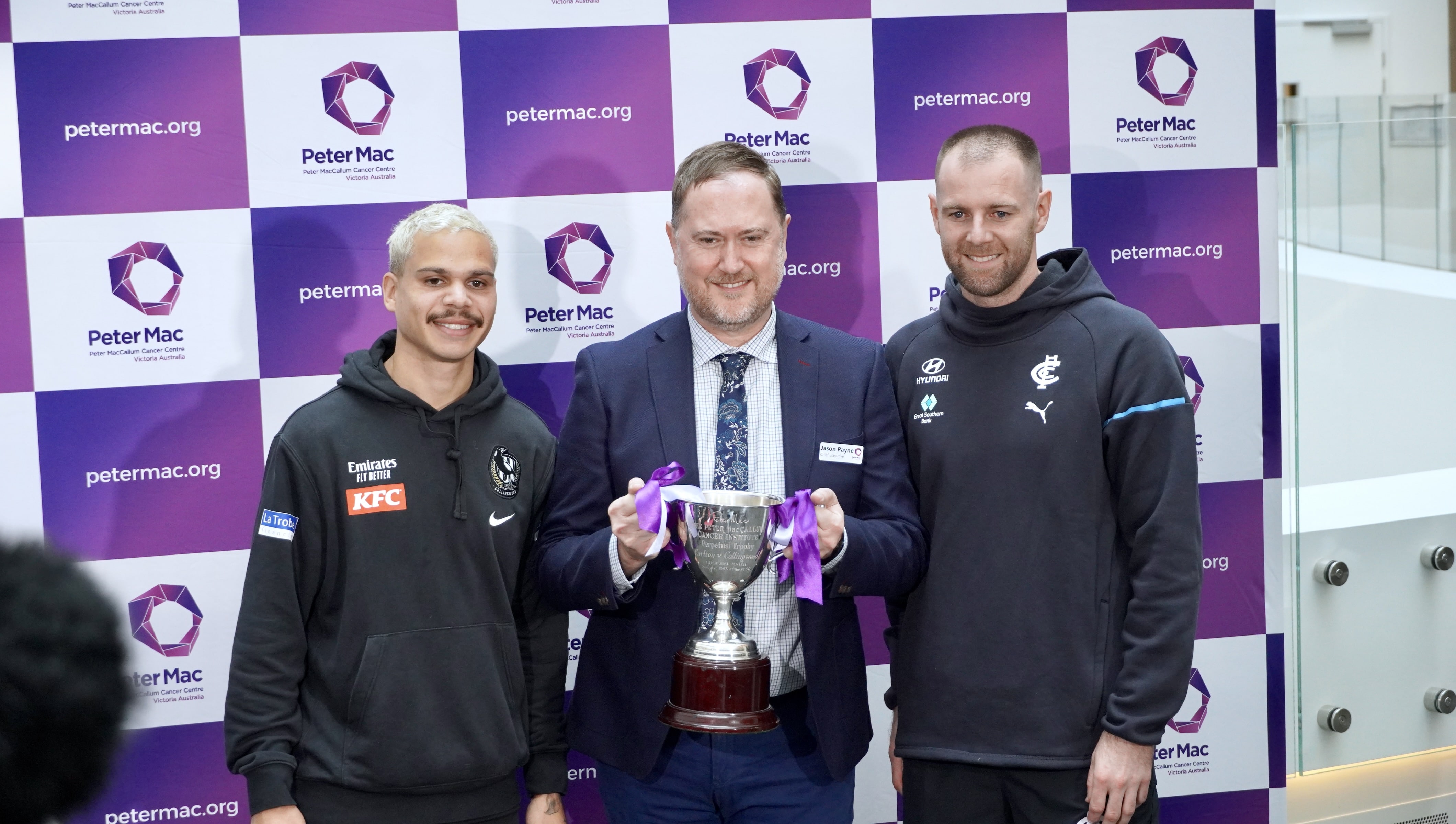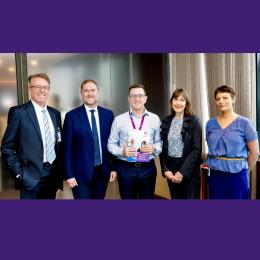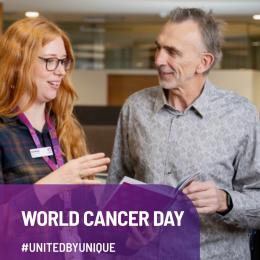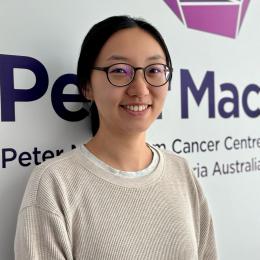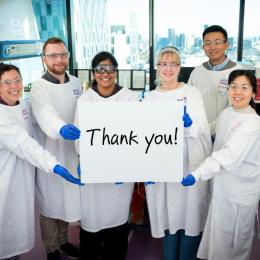New hope for people with hard-to-treat blood cancers
2 min read 01 June 2022
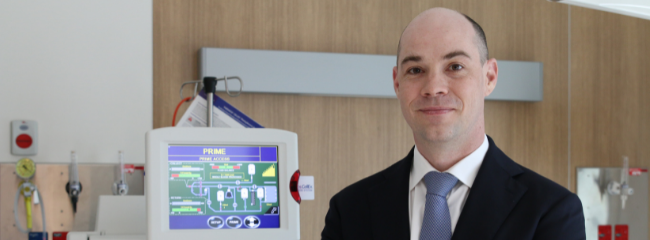
For patients with some hard-to-treat blood cancers, a new immunotherapy is achieving promising results.
A clinical trial of the developmental drug Glofitamab has shown it can produce a durable “complete response” – meaning there was no evidence of cancer - in patients with relapsed or treatment resistant B-cell lymphomas.
One option for these patients is CAR T-cell therapy – also an immunotherapy but one which involves collecting the patient’s T-cells and reprogramming these cells in a laboratory to form a cancer-fighting infusion.
Peter Mac’s Group Leader for Aggressive Lymphoma, Associate Professor Michael Dickinson, said this new development had shown early impressive results in a similar group of patients.
CAR T-cell therapy is a game-changer for how we treat blood cancer patients who have exhausted conventional treatment options,” said A/Prof Dickinson. “However the complexity of CAR T-cell therapy has highlighted the need for more options.
More than half (53.8%) showed an anti-cancer response to the drug, and more than a third (36.8%) had a complete response - meaning they were cancer free.
The response rate, and complete response rate, increased to 65.7% and 57.1% respectively in a group who received the dose to be tested in a future expansion of the trial.
Among patients with a complete response, for most (84.1%) this was enduring and the longest tracked patient was cancer free for more than two years.
This promising new approach provides renewed hope for people living with blood cancers and their families.
@Follow us on Instagram (@SupportPeterMac)

